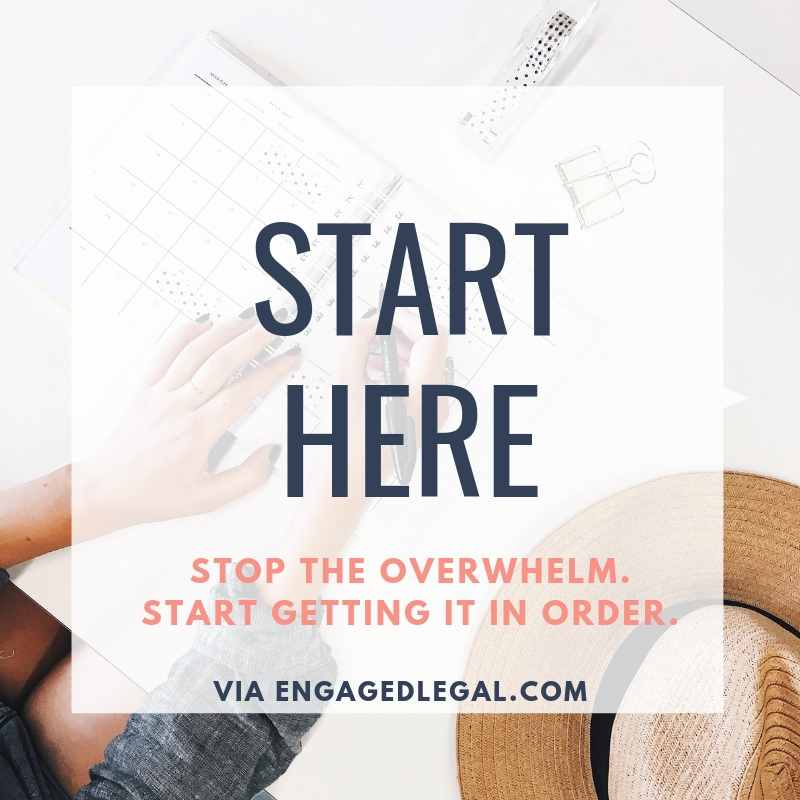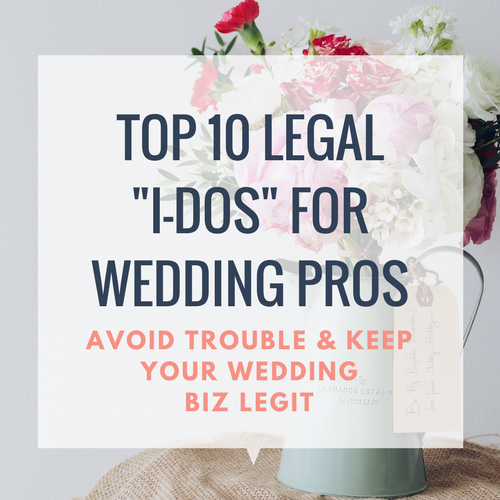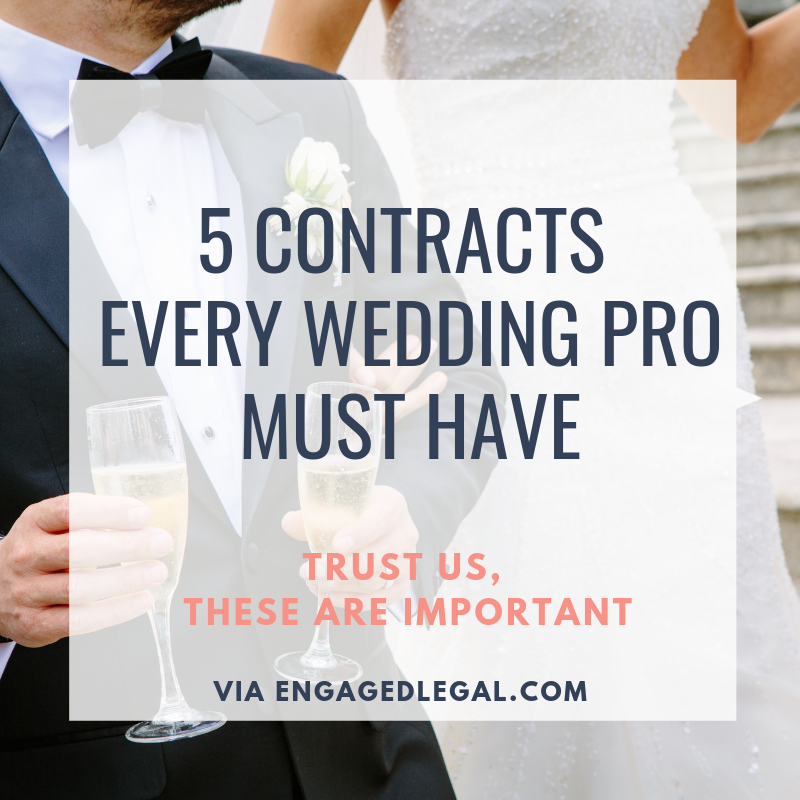What Now? A #WeddingPros Guide to Post-Covid Events
/"🎼What Comes Next? /
You’ve been freed /
Do you know how hard it is to lead?Your on your own/
Awesome, WOW! /
Do you have a clue what happens now?🎶
Well… do ya?
Excuse me while I start humming Hamilton over here.
But really: the world is starting to open back up. Events are happening. So…..what do we do now? How do event pros proceed? And where do we go from here?
You feel like your hands are tied, you don’t know what to do, and you don’t want to do the “wrong” thing. But…. you’ve got to start working again.
So what comes next? DA DA DA DA DAAAAAAA / DA DA DA DA DAYYYYE A DA….
Let’s get into it.
1) Know your responsibilities.
As a business owner, what are your responsibilities moving forward? How do you avoid liability for COVID-related issues? What do you need to do to keep your clients— and your business— safe?
Spoiler alert: there is no “one size fits all” checklist here. Which is kind of frustrating.
At the end of the day, when looking at legal liability for your business, we’re working with a malleable standard: REASONABLENESS. As in, “How reasonable were your actions?” And reasonableness means different things for different industries in different parts of the country.
Being “reasonable” essentially means “are you making responsible choices with the facts you have at that moment?”
Some things to support “reasonableness” or that can help you evaluate your decision?
CDC Guidelines! Following social distancing, mask usage, and other recommendations from the CDC show that you’re attempting to keep folks safe.
Trade groups. If you are in an industry organization (WIPA, NACE, and PPA are some examples) these groups will often hold webinars, publish studies, or give recommendations and checklists to members. There are national and local branches of most trade groups. Following these guidelines will give you a good idea what is “normal,” and shows that you’re trying to act reasonably within your industry.
Local ordinances and guidance. What’s appropriate for events in New York and Texas is going to look vastly different than events in the middle-of-nowhere Arkansas. Look at the trends in your area, keep track of the “spikes,” and act accordingly. If your area is at a higher risk and on the upswing in cases, consider pushing your couples to spread out dinner tables, require masks throughout the event for ALL guests, and distance chairs at the ceremony and reception. Place more sanitizer stations among the guests. Guide your staff on proper sanitation protocols and give them up-to-date information on preventing the virus.
Personal health evaluations. Don’t forget yourself— or you staff members! Thoroughly evaluate health by taking temperatures before each event, become familiar with symptoms of COVID-19, or even require that your staff have a COVID-19 test. If you or your staff has a temperature or a positive test? Sit this one out and sub in a trusted colleague.
While tests are not always accurate, showing you required testing will support the claim that you were doing everything you could to be safe. Remember…. we love paper trails!
2) Determine your risk tolerance.
It’s important for each person to determine just how much risk they can tolerate. This goes for business owners as well. Will you wear a mask the entire event? Will you only attend events where your client’s guests wear masks? Do you want clients to require temperature screenings? Will you only agree to perform services when appropriate social distancing is in place? Must all guests sign a waiver— and does that protect you?
Another consideration: if guests AREN’T wearing masks, and you get sick, you’re creating BIG problems for your other clients (and your cashflow). And that’s another can of worms! 🥫😱
Walk through these scenarios and figure out where your “line in the sand” lies. Then, communicate these to your team and your clients. While you may not always be able to enforce these requirements in contracts that remain unchanged by COVID, (note: one-sided contract changes/ waiver requirements won’t usually work, but look to see if there is a preexisting “health and safety” or “safe working environment” section you can leverage in your original contract) you can write your changes into postponement agreements, cancellations and rescheduling agreements, or into your new client’s contracts. Which brings us to…
3) UPDATE YOUR CONTRACTS.
GOOD NEWS! If you’ve purchased a contract from our shop in the past, you may have already received a post-COVID update. If not, it’s coming soon, because we’re doing our own set of updates!
Why is this important? Because after “Round I” of COVID madness, we’re no longer in force majeure territory (for a reminder on force majeure, click here).
The kicker with force majeure is that it’s all about those “unforeseeable” situations. Since we know about COVID-19 now, your new contracts really need to address the procedure head-on.
Plus, your clients— who have heard LOTS of horror stories by now— will want to see COVID-19 clauses and plans.
I’ve seen a lot of interest in:
Postponements— when can they postpone, what happens to the money clients have paid, and under what circumstances postponements are free vs. cost extra (e.g. “prime Saturdays” in 2021).
Nonrefundable Retainers/ deposits (make sure these are set up properly or they are useless!)
Postponement multiple times, and charging for additional postponements/ dates and/ or upcharges for additional work, planning, labor, etc.
What happens if someone terminates after a postponement
Splitting weddings into a small elopement + a shorter “celebration” at a later date.
COVID-19 vs. other force majeure events like hurricanes, wildfires, earthquakes, and whatever else 2020 throws at us.
LOTS of things to consider, so make sure your contract addresses each of these scenarios.
I recently did a webinar for WeddingWire/ The Knot/ Wedding Pro where we talk about important post-Covid contract concerns as well, so check that out if you haven’t seen it. It might put some of these into context!
——
The bottom line? Be “reasonable.” Look at the facts. Play it safe. Don’t take a risk just because it’s “possible” or “you won’t get caught.” Because even if you don’t get caught at the event itself, you could be opening yourself up to liability later.



















